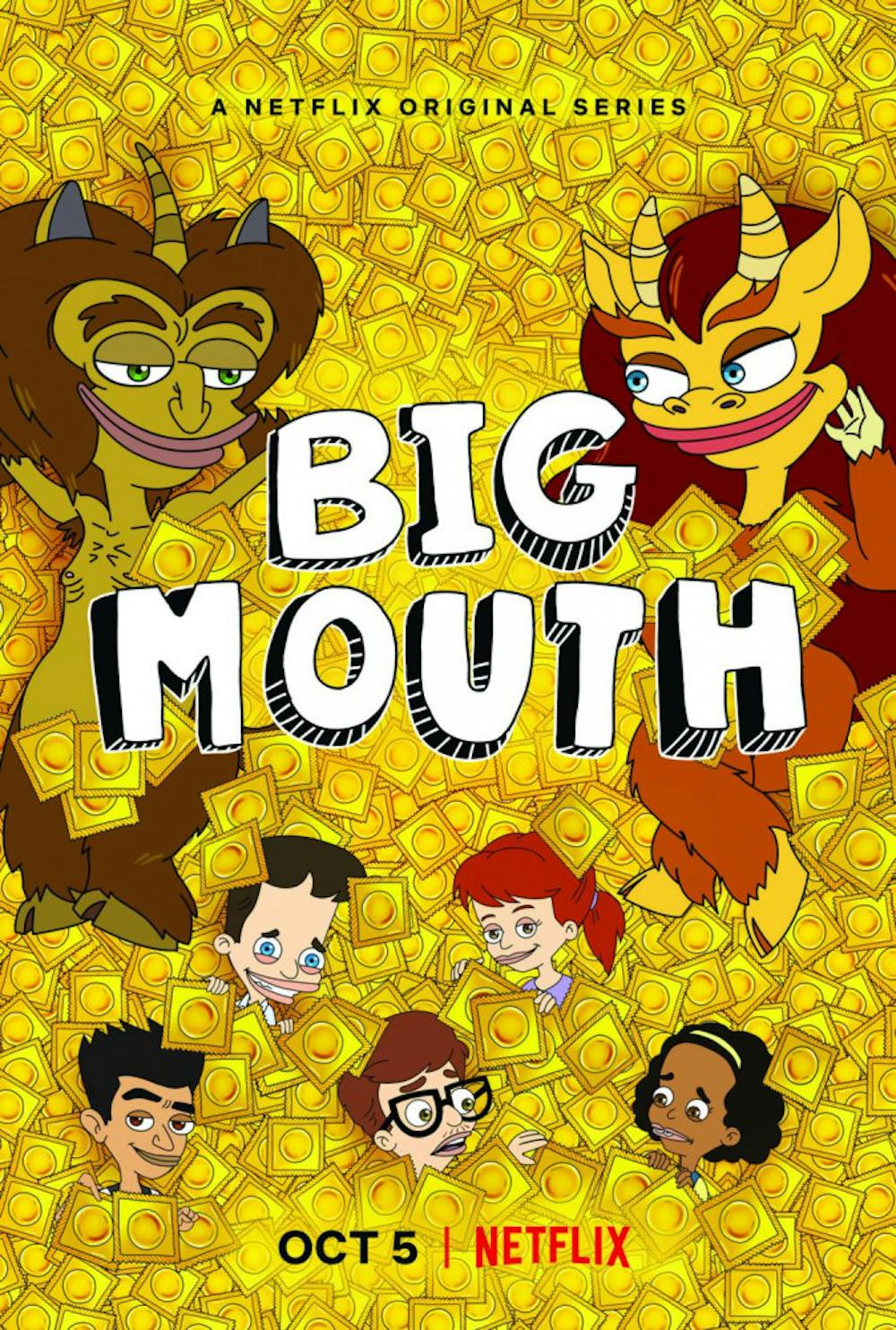Puberty is a time of self-discovery; a trial-and-error process that requires constant failure in order to understand oneself. There is no show quite like “Big Mouth.” It is singular in its honest and uninhibited approach to this subject matter. Many shows have tried — some in vain — to capture the essence of the turbulent time that is puberty, when young adults are blossoming ungracefully into adulthood. Yet “Big Mouth” seems unique in its ability to look past the tawdry jokes that come readily to creators of puberty-focused shows and reminds audiences of a time when the world possessed far more questions than answers.
In “Big Mouth” Season 3, show creators expand the already wide scope of the story to discuss questions not only about puberty, but also questions of societal importance.
After an early released episode for Valentine’s Day, “Big Mouth” immediately confronts sexist tendencies through the harsh and unfair implementation of a school dress code. The boys of the school are in an uncontrollable animalistic frenzy, brought on by what they claim is the girls’ loose and revealing clothing. Andrew Glouberman (John Mulaney), one of the show’s foremost pubescent characters, says, “I do feel out of control all the time and I’m going to use that as an excuse for my actions.” This dress-code is soon fought by the girls marching through the school always in what they call a “slut-walk,” yet in doing so they shame a girl for wearing her normal clothing, in contrast to their own provocative outfits. In scenarios like this, the show applies abstract issues in society to everyday interactions, allowing the voices of the characters to speak for the masses. In doing so, “Big Mouth” is able to provide some insight into many of the problems troubling the way in which society treats its members.
This is where the brilliance of “Big Mouth” lies; it is distinct in its capacity to tackle the toughest of modern problems with subtlety, adding notes of comedy throughout to engross its viewers. The topics range from gender misconceptions, helping Jay (played by Middlebury’s own Jason Mantzoukas ’95) discover his sexual identity through song, to the difficult intricacies that surround sexual harassment through the inappropriate relationship between Lola (Nick Kroll) and her theater director Mr. Lizer (Rob Huebel).
With the inconsistent, and sometimes unhelpful, aid of their hormone monsters, “Big Mouth’s” characters fumble on their way towards self-realization. Characters are allowed to make mistakes; they fight, steal kisses, argue, crash cars and hurt each other in trying to discover who they are to be. By walking in the wrong direction they find the right path. Nothing is off the table for “Big Mouth” and because of it, the show finds its honesty in the strangest of circumstances. Andrew is constantly trying to understand and combat his budding sexuality. At times his sexual interest is directed towards his friend Missy (Jenny Slate) or Dwayne “The Rock” Johnson and at other times towards his own cousin; there seems to be no end to the difficulty in finding what truly makes us tick.
“Big Mouth” doesn’t shy away from presenting images of both cartoon male and female genitalia, as the characters strive to understand not only their own bodies, but also themselves in relation to those around them. It aims to be an inclusive show, with main characters including straight, gay, black, white people and a “bisexual cisgendered polyamorous magician.”
“Big Mouth” is, in its essence, a show about identity, of discovering oneself within the tumultuous and hormone-fueled time of burgeoning adolescence. The show reveals that failure is a necessary evil on the path to truth. Its characters fail. They fail to be good friends. They fail to be good children. They fail to be good students. But they do not fail to be good people, because the road to self-discovery requires this failure and they are all the better for it. It is often easy in our maturity to forget just how treacherous the road to this place was, but “Big Mouth” places us right back in our youths and questions the strength of our own self-understanding.

Owen Mason-Hill ’22 is the Senior Arts & Culture Editor.
He previously served as a staff columnist, writing film reviews under the Reel Critic column. Mason-Hill is studying for a Film and Media Culture major, focusing his studies on film criticism and videographic essays.
His coverage at The Campus focuses primarily on film criticism, and has expanded to encompass criticism of other mediums including podcasts, television, and music under his column “Direct Your Attention.”




